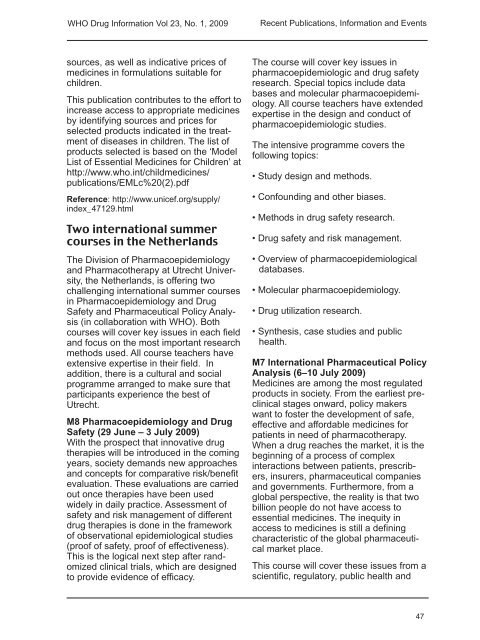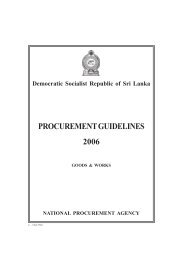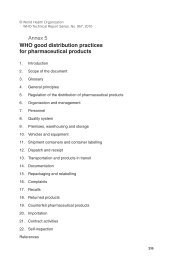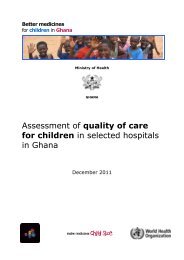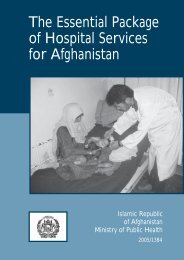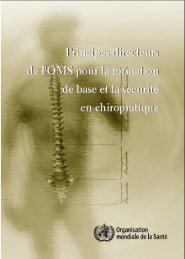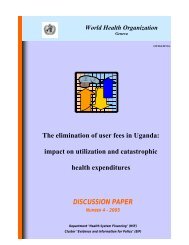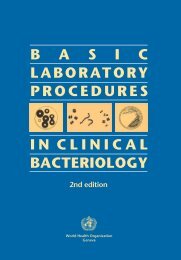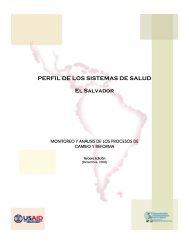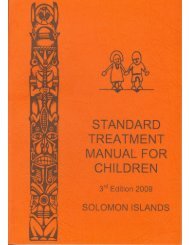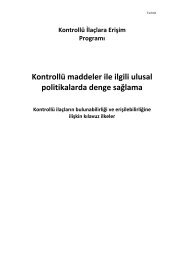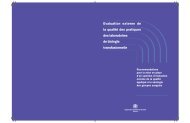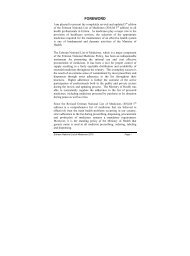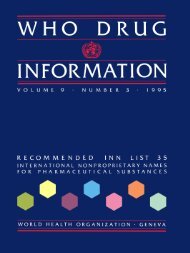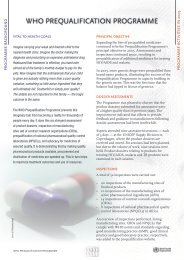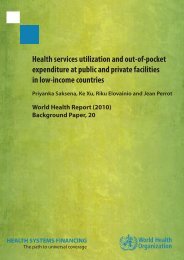WHO Drug Information Vol. 23, No. 1, 2009 - World Health ...
WHO Drug Information Vol. 23, No. 1, 2009 - World Health ...
WHO Drug Information Vol. 23, No. 1, 2009 - World Health ...
You also want an ePaper? Increase the reach of your titles
YUMPU automatically turns print PDFs into web optimized ePapers that Google loves.
<strong>WHO</strong> <strong>Drug</strong> <strong>Information</strong> <strong>Vol</strong> <strong>23</strong>, <strong>No</strong>. 1, <strong>2009</strong>Recent Publications, <strong>Information</strong> and Eventssources, as well as indicative prices ofmedicines in formulations suitable forchildren.This publication contributes to the effort toincrease access to appropriate medicinesby identifying sources and prices forselected products indicated in the treatmentof diseases in children. The list ofproducts selected is based on the ‘ModelList of Essential Medicines for Children’ athttp://www.who.int/childmedicines/publications/EMLc%20(2).pdfReference: http://www.unicef.org/supply/index_47129.htmlTwo international summercourses in the NetherlandsThe Division of Pharmacoepidemiologyand Pharmacotherapy at Utrecht University,the Netherlands, is offering twochallenging international summer coursesin Pharmacoepidemiology and <strong>Drug</strong>Safety and Pharmaceutical Policy Analysis(in collaboration with <strong>WHO</strong>). Bothcourses will cover key issues in each fieldand focus on the most important researchmethods used. All course teachers haveextensive expertise in their field. Inaddition, there is a cultural and socialprogramme arranged to make sure thatparticipants experience the best ofUtrecht.M8 Pharmacoepidemiology and <strong>Drug</strong>Safety (29 June – 3 July <strong>2009</strong>)With the prospect that innovative drugtherapies will be introduced in the comingyears, society demands new approachesand concepts for comparative risk/benefitevaluation. These evaluations are carriedout once therapies have been usedwidely in daily practice. Assessment ofsafety and risk management of differentdrug therapies is done in the frameworkof observational epidemiological studies(proof of safety, proof of effectiveness).This is the logical next step after randomizedclinical trials, which are designedto provide evidence of efficacy.The course will cover key issues inpharmacoepidemiologic and drug safetyresearch. Special topics include databases and molecular pharmacoepidemiology.All course teachers have extendedexpertise in the design and conduct ofpharmacoepidemiologic studies.The intensive programme covers thefollowing topics:• Study design and methods.• Confounding and other biases.• Methods in drug safety research.• <strong>Drug</strong> safety and risk management.• Overview of pharmacoepidemiologicaldatabases.• Molecular pharmacoepidemiology.• <strong>Drug</strong> utilization research.• Synthesis, case studies and publichealth.M7 International Pharmaceutical PolicyAnalysis (6–10 July <strong>2009</strong>)Medicines are among the most regulatedproducts in society. From the earliest preclinicalstages onward, policy makerswant to foster the development of safe,effective and affordable medicines forpatients in need of pharmacotherapy.When a drug reaches the market, it is thebeginning of a process of complexinteractions between patients, prescribers,insurers, pharmaceutical companiesand governments. Furthermore, from aglobal perspective, the reality is that twobillion people do not have access toessential medicines. The inequity inaccess to medicines is still a definingcharacteristic of the global pharmaceuticalmarket place.This course will cover these issues from ascientific, regulatory, public health and47


